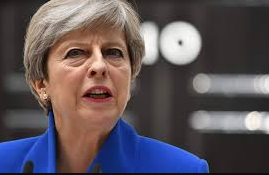
Former PM highlights risks of being ‘out of sight, out of mind’ as remote work changes workplace dynamics.
Theresa May has cautioned that the shift toward flexible working could put women at a disadvantage in their careers, as they risk becoming less visible to senior managers. Speaking during a conversation with former Australian Prime Minister Julia Gillard for International Women’s Day, May addressed how caregiving responsibilities and remote work impact women’s professional opportunities.
May explained that many women balance childcare and caring for elderly relatives, which places them in a challenging position in the workplace. While flexible working is widely recognised by senior business leaders as beneficial, she noted that middle management has been more resistant to its adoption.
She explained this resistance, saying, “It was middle management that found it most difficult and I think it was because often for middle management, presence in the office was their way of judging your output, rather than actually having to judge the output on its own sake.”
May further added that the pandemic had shifted attitudes toward remote work, showing many employees could maintain productivity at home unless they were in roles requiring physical presence. Despite this, she warned that if women adopt flexible working disproportionately, they risk missing out on key opportunities, such as informal networking moments with senior leadership.
May recounted a story from Australia about a woman who deliberately timed her Monday morning lift journey with the company’s CEO, using these small interactions to strengthen her visibility and career prospects. She concluded that “out of sight can be out of mind” and highlighted that while flexible working can help women manage their responsibilities, it carries potential long-term risks if it reduces their visibility.
She urged that more managers must embrace flexibility while ensuring that it does not inadvertently hinder women’s chances for career progression.
The conversation was part of the Global Institute for Women’s Leadership event held at King’s College London.


















Comments
Hello world!
Pic of the week: Sunset at margate beach
The first day’s journey was through the pink fields
The first day’s journey was through the pink fields
The first day’s journey was through the pink fields